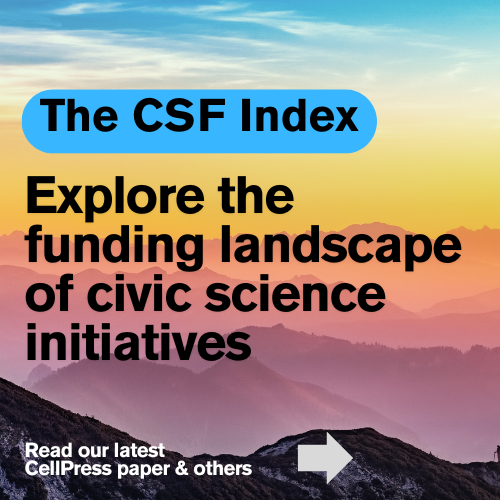Civic Science Observer
From Labs to Lights, Camera, Action: What is the Role of Science Consultants in TV and Film?
Science advisors have had a major impact on pop culture through motion pictures and TV shows — such as Twisters, Big Bang Theory, Oppenheimer, and almost every Marvel movie made. Science advisors, sometimes known as science consultants, “assists the entertainment industry in harnessing science as a creative means” according to the National Academy of Sciences Science & Entertainment Exchange.
The Exchange connects industry professionals in film and tv with scientists and engineers to consult on the science involved in their projects. Consultants work independently or through organizations such as the Exchange or even University of Southern California.
“Our mission is effectively to inspire more and better science in feature films, TV shows and video games,” says Rick Loverd, the program director of the Science & Entertainment Exchange Program, in an interview with to Inverse.com
However, consultants don’t necessarily fact check scientific aspects in a movie. They provide guidance to make sure that the science in the story is somewhat realistic. Advisors can even provide context on how explaining a specific context should feel or on what their experience as physicist, scientists, etc is like in real life.
Oppenheimer, for example, was a movie that had a cultural impact in Summer 2023 by earning $960 million at the box office and won Best Picture at the Oscars earlier this year. Christopher Nolan, Director of Oppenheimer, worked with scientific advisors for feedback on both the physics of the project and to understand more about J. Robert Oppenheimer’s life. David Saltzberg, a physicist at University of California Los Angeles and regular consultant on the Big Bang Theory, helped out with production scenes and with the prop manager on what was presented on chalkboards and papers between characters. Saltzberg explained the physics of dialogue lines to ensure they could understand the emotion that should be presented with it as well.

“We often complain there’s no content in popular culture. For me, the biggest surprise was that this difficult movie about a difficult topic and a difficult man, shot in a difficult way, became a hit around the world. I feel that’s very encouraging. The hidden life of physicists has become a part of popular culture, and rightly so.” — Robbert Dijkgraaf, Theoretical Physicist, Dutch Minister for Education, Scientific Consultant on Oppenheimer, says in an interview with Nature.
There is no one size fits all job description for what a science consultant can do or how they can get involved in the field. Some may see this as an opportunity to leave the lab environment but mostly it seems that this role is seen as a side job to communicate scientific knowledge to the public and portray scientists as real people and role models. While they do get paid and credited for their work on a film or show, consulting for these projects seems like a way to have fun for scientists.

James Kakalios, science advisor on the Amazing Spider-Man, for example created a course called “Everything I Needed to Know About Physics I Learned From Reading Comic Books”. He used examples from Spider-Man comics to explain scientific concepts, such as van der Waals forces. When the film was released he turned his course into a book and was invited back to consult for other Spider-Man movies.

Science plays a major role in entertainment. According to the Pew Research Center, 81% of Americans watch science-related programs including criminal investigations, hospital and medical settings, and science fiction. Science consultants and advisors can have an important impact on how the public interacts with, comprehends, and reacts to science. For example, science advisor Donna Nelson consulted on Breaking Bad along with the US Drug Enforcement Agency to ensure that the show did not glorify misuse and include harmful aspects of the drug production process.
Despite the impact that consultants can have on popular media and entertainment they do not receive the press coverage aligned with the significance of their role. Additionally, it’s not really clear whether these advisors are paid their worth for their knowledge. Screen credit is inconsistent and science advisors do not get a mandatory listing while other behind the scenes consultants such as animal trainers get paid a high rate. Further, within a movie budget a science advisor’s fee falls into the category of “below the line” expenses for perks or services that are helpful but not necessary.
“Credit optional. Remuneration especially optional,” says Malcolm MacIver, bioengineer and consultant on Tron Legacy and Terminator: Genesis, in an interview with Nature. “I don’t think that [working without pay] will change until the appropriate institutions provide pressure”
Science consultants shape how science is viewed by the public. They ensure a realistic touch that viewers enjoy when it comes to science-related entertainment. Consultants also shape how scientists can be portrayed in movies and films as real people and role models for their viewers. Despite the influence that consultants have on entertainment there seems to be a lack in designated funding and accolades for those in this role. Unfortunately, this makes the consultant role accessible to people who can financially afford to do this as a side hustle compared to a full time job.
To be able to address the issues in the field there needs to be standardization in the industry in the form of data. There is currently no data on the breakdown of the industry — who are science consultants, do they work mostly full time or part time, and what is the pay based on experience. Having this knowledge will help present the issues to both the scientific and entertainment community so that solutions can be formed.
—
I am a bioengineer and content creator. I have a B.S. in Biomedical Engineering from Virginia Commonwealth University and a Bioengineering PhD from the University of Maryland, College Park.

-
Civic Science Observer4 weeks ago
What are the objectives of the Neurotech Justice Accelerator at Mass General Brigham?
-
Civic Science Observer4 days ago
Meet the New Hampshire organization changing the way we see insects
-
Civic Science Observer2 months ago
Dear Colleagues: Now is the time to scale up public engagement with science
-
Civic Science Observer6 days ago
Dear Colleagues: Help us understand the national impacts of federal science funding cuts on early career researchers in academic laboratories

























